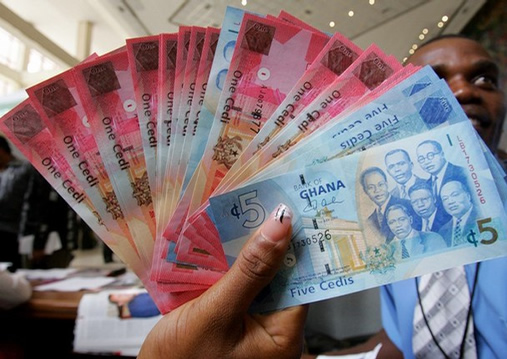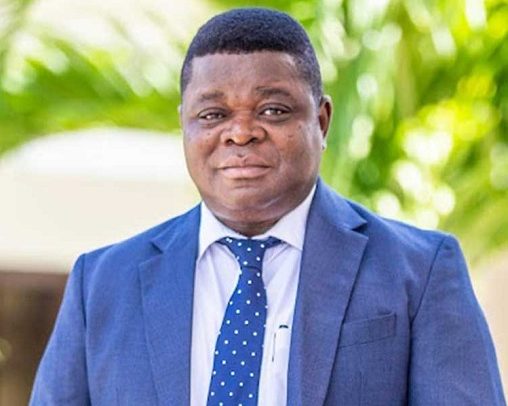
Professor Peter Quartey, Director of the Institute of Statistical, Social and Economic Research (ISSER) says the recent appreciation of the cedi is the result of a complex mix of domestic and international factors.
Prof. Peter Quartey emphasised that while the cedi had faced downward pressure, some domestic policies were actively helping to mitigate the decline.
The Director of ISSERwas speaking in an interview with the Ghana News Agency, on the back of a two-day conference of Merian Institute of Advanced Studies in Africa’s (MIASA’s) 12th Interdisciplinary Fellow Group (IFG12) in Accra.
The conference was on the theme: “Cash in Crisis in Africa: Navigating Financial Realities in Times of Disruption.”
It is aimed at exploring the often conflicting dynamics between policy and governance frameworks and crises in shaping the circulation, accessibility and utilization of cash in an
increasingly digitized African society.
He pointed to the government’s Gold for Reserves programme as a positive step in cushioning the impact of global economic instability.
“Domestically, the gold for reserves policy is helping because of what is happening globally,” he said.
Prof. Quartey said there were improvements in fiscal discipline, indicating that the government was currently living within its means, spending within the limits of what it raises in revenue.
“If we were running an excessive deficit, we would have to borrow more, and that would increase interest payments and put pressure on the cedi. But we are not doing that now,” he explained.
The Director of ISSER commended the improved coordination between the Ministry of Finance and the Bank of Ghana, noting a more unified and transparent approach to economic management.
“I find the Bank of Ghana to be more engaged now and they are carrying the public along, explaining policies and reforms. When you do that, people gain confidence in the local currency and that strengthens the cedi,” he said.
Prof. Quartey pointed to global tensions, particularly the ongoing trade dynamics between the United States and China as a contributing factor to the weakening of the US dollar.
However, he expressed optimism that as tariff-related disputes eased and international agreements took shape, global currency markets were likely to stabilise.
He urged the government to stay the course with its current domestic strategies, warning that any deviation could reverse the progress made.
“If we continue doing what we are doing domestically, we will see more stability in the cedi, otherwise, the depreciation could worsen again,” he said.
Professor Peter Quartey has in another development called for a more inclusive and balanced policy approach as African countries push towards a cashless economy.
He said there was the need for a balanced and inclusive approach that accommodated both cash and digital options, especially for the unbanked, marginalised and less digitally literate segments of societies in Africa’s transition toward a cashless economy.
He was speaking at the opening of a two-day conference of Merian Institute of Advanced Studies in Africa’s (MIASA’s) 12th Interdisciplinary Fellow Group (IFG12) in Accra.
The conference was on the theme: “Cash in Crisis in Africa: Navigating Financial Realities in Times of Disruption.”
It is aimed at exploring the often-conflicting dynamics between policy and governance frameworks and crises in shaping the circulation, accessibility and utilisation of cash, in an increasingly digitized African society.
He said, “let us not restrict people to only one form of payment. Cash and digital payments should coexist to ensure financial inclusivity and resilience.”
Prof Quartey lauded the theme as highly topical and relevant to today’s policy discourse, saying it was very relevant, especially considering the current financial disruptions and the growing push for digital transformation.
He noted that ISSER, in collaboration with the Innovation for Poverty Action (IPA), was also making significant strides in the digital finance space.
“Currently, we are funding about 19 studies through the Gates Foundation across low-and middle-income countries such as India, Ghana, Pakistan and Indonesia.
“These studies are exploring how commercial solutions and agent networks can be leveraged to reach the last mile,” he added.
Highlighting the growing significance of digital payments, Professor Quartey referenced the 2024 GSMA report, which shows continued but albeit slow growth in mobile money usage.
According to the report, mobile money users reached 1.7 billion in 2023, marking a 12 per cent increase over the previous year.
In addition, agent networks in sub-Saharan Africa have seen 22 percent growth since 2002, now numbering over 18.6 million.
“These figures underscore the rising importance of digital payments; however, we must also recognise the persistent challenges in reaching underserved populations, micro and small enterprises, the unbanked, and rural communities,” he said.
By Hafsa Obeng
GNA
The post Cedi appreciation driven by mixed domestic & global factors –Prof Quartey appeared first on The Ghanaian Chronicle.
Read Full Story



















Facebook
Twitter
Pinterest
Instagram
Google+
YouTube
LinkedIn
RSS